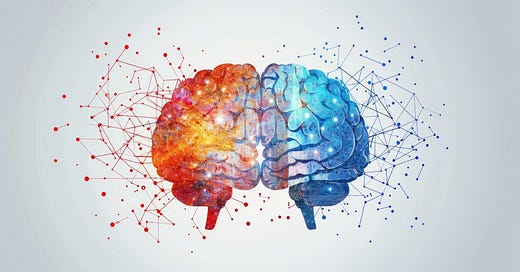Weekly Roundup: Biased Brains Make Fast Decisions, How Your Brain Suppresses Alternatives, the Brain Chemical that Helps you Choose Exercise over Milkshake, and How Your Morals Change with the Seasons
A weekly roundup of recent research on the brain and various aspects of decision making.
I’ll start off this week with some research that caught my attention on decision making. I am a slow decision maker and can be very indecisive - apparently this is good thing!
Fast Decisions Reflect a Biased Brain
My mother used to say it was because I was born a Libra - the scales represent indecision she thought. Well, astrology is junk and now some research may point to another reason for my indecisiveness and longer decision making. Lack of bias.
Mathematician Samantha Linn et al. conducted research into purely mathematical models of decision making using something known as evidence accumulation models which are designed to assess how agents accumulate and integrate information in order to make a decision.
This is useful for everyday life, in business, but also can explain some facets of extremism.
And what did they find?
Well as I’ve already alluded to:
“…results revealed that, in groups of agents whose only differences are in their initial biases, those with the most extreme predispositions made decisions with the most speed. The effect can be seen even in small groups, but is especially pronounced in larger groups, and the decisions of these biased agents agree with their initial bias, regardless of what information is available to them to access.
The time it took to make a decision was inversely proportional to the strength of the bias. Those agents that took the longest time made decisions that were least influenced by their initial bias. And their decisions were more likely to be correct than snap decision makers.”
Michelle Starr, Science Alert
So biased people make the quickest and most secure decisions - less biased individuals will collect more information, be slower to make decisions, but will make better decisions.
So in business or society beware of those who make quick confident decisions particularly when information is sparse.
The model is a mathematical model but does not take into account different contexts that us human beings may face - it could also be, and I think of myself, that in areas that we know well, we make quicker and more confident decisions. This is often based on expertise…but may still have the risk of missing important unbiased information.
But from mathematical models to brain models - some research earlier in the year mapped neurons when making decisions.
Your Brain Suppresses Alternatives When Making a Decision
This research wasn’t mathematical but involved recording activity in neurons and across networks in mice when making a decision in a maze. This is pretty special because Kuan et al. of Harvard medical School focused on networks which is not common because of its complexity in neuroscience research.
Mice were tasked with finding a reward based on a cue indicating whether they should turn left or right. A simple task but it helps us disentangle decision-making dynamics in the brain.
The focused on an area of the brain called the Posterior Parietal Cortex in the rear of the brain because this is understood to be an area where sensory information is integrated. They first mapped the decision making pathways and then viewed them when making decisions.
Keep reading with a 7-day free trial
Subscribe to leading brains Review to keep reading this post and get 7 days of free access to the full post archives.




